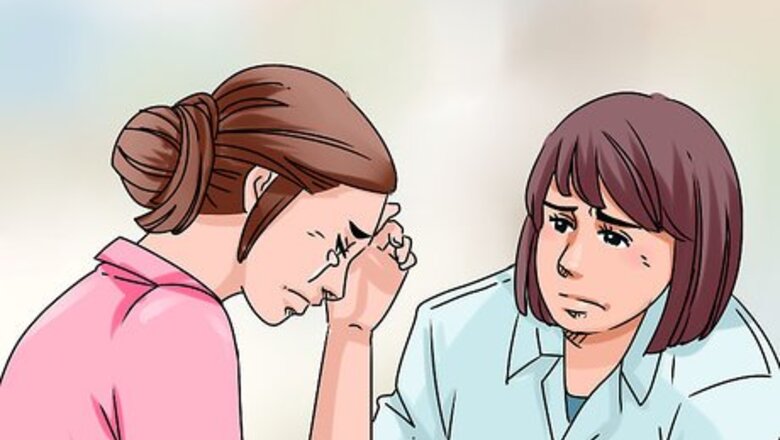
views
Identifying Emotional Causes
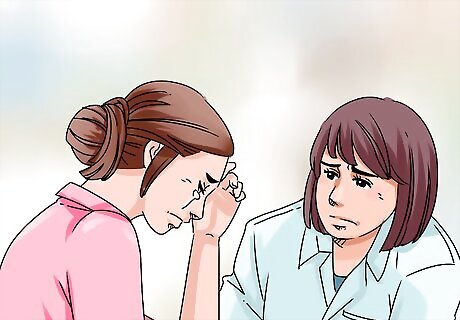
Visit a mental health care professional to determine whether you suffer from some form of depression. Depression and anxiety are often accompanied by a decrease in sexual drive. It is important to identify and treat depression first before you address your lack of sex drive. In some cases, antidepressants may be prescribed to improve symptoms of depression. Be honest with your doctor about the decrease in your libido, since some prescription drugs can also reduce sex drive. Changing the medication often results in fewer affects on your libido.

Use a therapist to identify your sexual self-esteem. How do you define yourself as a sexual being: are you sexually appealing? How do you perceive yourself? Why? It is important to have high sexual self-esteem but there can be a number of factors, including abuse, harassment, weight gain, and being called demeaning names, that can negatively impact your sexual self-esteem. If you find the issues involve your partner, keep them in the loop. Find a therapist or counselor who has experience working with low libido and actively work on these emotional causes with your partner.

Communicate with your partner about how you are feeling. Your libido will have an impact on your partner, so keep them informed to work on your sex life together. Open communication allows you to explore how to enjoy sex and one another’s desires. It’s important to define your sexual expectations together. A lack of communication is a sure libido-killer. Think about it this way: How is your partner to know what you like or dislike if you can’t address it to them? By opening the lines of communication and being honest with yourself, you can tell your partner your desires and dislikes. Perhaps you enjoy a particular touch from your partner and when it doesn’t happen, you have a hard time finding your libido. Being able to pinpoint this and communicate you need to feel sexual will help keep your libido roaring. Keeping communication alive isn’t just about communicating on sex. It’s also important to be able to communicate about other life problems such as work and finances. If your partner is doing everything they should in the bedroom, perhaps your lack of libido is coming from elsewhere, such as resentment over a financial issue.
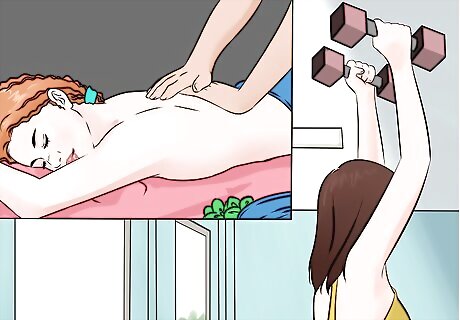
Decrease your stress levels. Stress can lower your libido. Stress can be brought on by many factors including finances, occupation, health, and family. Identify the main stressors in your life and take the necessary steps to manage a balanced routine. Get massages, exercise, or develop a healthier work/life balance. Only you will know what is the most effective way for you to deal with stress. Communicate with your partner to increase the level of intimacy and help manage your stress levels. Even scheduling intimacy makes it a priority.

Set aside time for being sexy. When life gets busy, you may find your libido is left behind in the dust. As unsexy as it may sound, setting aside weekly times to enjoy your body will help keep you in the routine of having a libido. If you want to include your partner, remember that you don’t have to necessarily have sex, but instead upkeep closeness and intimacy in your relationship. Don’t worry about it feeling unsexy. After the business of getting the kids to school, working all day, making dinner and getting the kids to bed, you likely find that a lacking energy level will plummet your libido. By having a fun activity to look forward to, you’ll have all-day anticipation and a time slot to set aside your daily worries and focus on yourself.
Identifying Physical Causes
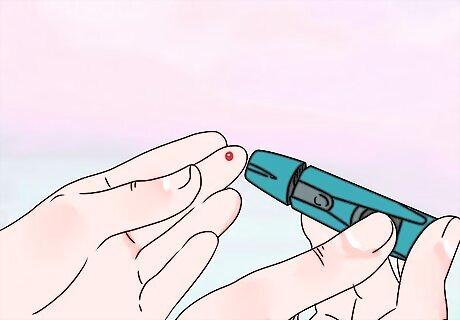
Get tested for endocrine problems or chronic diseases that can affect your sex drive. Thyroid disease is a type of endocrine problem that affects menstrual functioning and can lower sex drive. Chronic diseases like anemia and diabetes are also known to lower the libido. Doctors can help you address these conditions once diagnosed. If you’re suffering from a chronic disease, take the focus off intercourse and explore alternate ways in achieving sexual pleasure. Removing the pressure can help your libido come back naturally.
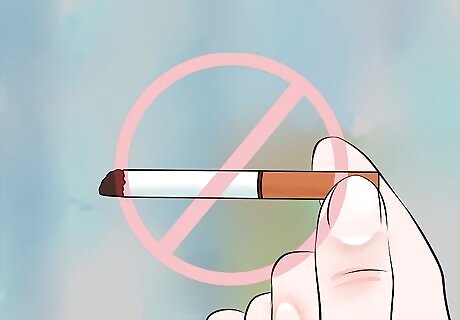
Quit smoking. Tobacco affects blood circulation, which can lower the sensitivity and function of genitalia. Smoking also affects testosterone levels, the hormone that affects libido. Consult a healthcare professional before increasing your testosterone levels via supplements. Bioidentical testosterone supplements should be tailored specifically to your needs.
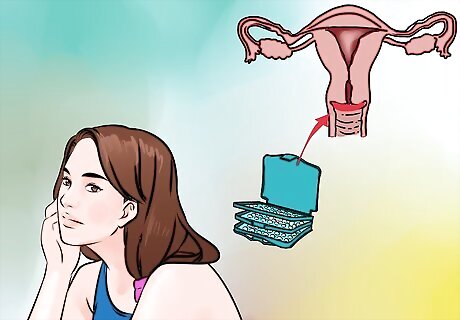
Understand the effects of your birth control pills. Women and other people with female sex organs who take a form of birth control pill may see a decrease in libido. Your body’s reaction to the pill depends on your individual body chemistry and the hormonal mixture within the ill. If you have been on the same birth control pill and you have only recently experienced a decreased libido, your body may be changing. It is still likely there is another, unrelated reason it has changed, but don’t be quick to write off your birth control. By careful noting of the exact changes, your doctor can help you identify if your birth control is the culprit.

Manage the transition to menopause. Sex drive declines as we age. While the effects of age are different for each individual, women in their late 40s and 50s commonly experience a decrease in libido. Loss of sexual drive and lack of lubrication are very common in postmenopausal women. Libido is often directly related to enjoyment of sex. If you’re having trouble lubricating, pick up a bottle of personal lubricant from the drugstore and try it out.
Utilizing Natural Libido Enhancers

Regulate your diet and eat healthy, sex-friendly foods. The right foods can increase blood flow to your sexual organs. Better choices will increase your libido. Eating fruits and vegetables every day can decrease risk of anemia, increase your overall energy and improve blood circulation. Replace red meat with protein from plants as saturated fats can affect libido. Try nuts, seeds, legumes and soy instead of red meat. Eat fruits and veggies instead of junk foods. Junk foods reduce blood while fruits and veggies provide lasting energy needed for increased sex drive. Sprinkle red pepper flakes instead of salt as peppers contain a chemical the encourages blood flow while salt increase blood pressure and lowers the libido. Eat whole grain cereals for zinc as it preserves testosterone. Though women do have lower levels of testosterone, it is still present and provides a strong libido. Eat small amounts of chocolate with 70% cocoa content or higher. Chocolate can provide the same arousal as an orgasm.
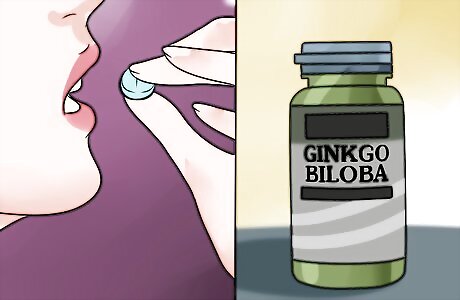
Take ginseng and/or ginkgo biloba supplements. These supplements are available over the counter, and they claim to target mood and sexual desire. Taking a supplement may result in improved libido because of the placebo effect. A certain percentage of people will always see an improvement in their condition because of a belief that they will improve. For this reason, it may be a better idea to use a supplement while you look for other possible causes of sexual decline. Do not take ginkgo biloba if you are taking blood thinners. Consult your doctor before taking either supplement if you have a health condition or are taking other medication. Supplements can interact with prescription drugs.
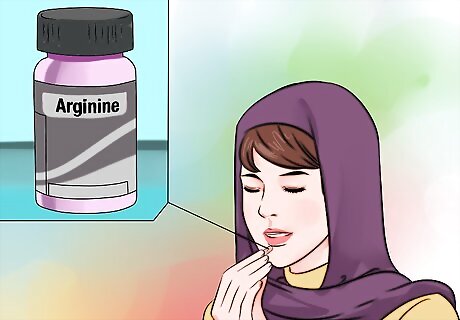
Take an Arginine supplement. This amino acid is essential to many body functions including blood flow. It is the main source of nitric oxide, which is responsible for sexual arousal in women. Nitric oxide increases blood flow to the genitals and can increase the intensity of the orgasm.
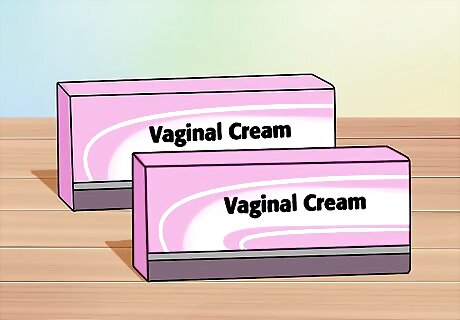
Use vaginal creams or oils. Vaginal dryness is a common symptom that can be treated with a vaginal lubricant and hormone therapy. While natural oils can be used to treat vaginal dryness, persistent symptoms may indicate a greater medical issue. Vitamin E can improve vaginal lubrication when applied daily in and around the vagina. Open a vitamin E capsule to obtain the oil, or use a dropper bottle to directly deposit liquid vitamin E to your hands. Try Zestra, a topical oil. This over the counter vaginal oil contains vitamins C and E, primrose oils and Angelica root. Studies claim to produce better libido increases than a placebo.
Introducing Sexual Stimulants

Practice pelvic floor exercises. Otherwise known as "Kegels," learning to control and strengthen the muscles that surround the vagina can result in increased arousal. Identify the muscle that aids you in stopping the flow of urination and lifting your lower abdominal muscles. Squeeze the muscles upward without squeezing your buttocks. Hold for 3 to 10 seconds then relax. Repeat in sets of 10 throughout the day.

Watch videos with your partner. Studies have shown that pornography can interest all genders, although women process the information differently. Being able to watch sexual activity and then express your feelings to your romantic partner opens a dialogue. If you identify as LGBTQ, you may be able to find inclusive porn.
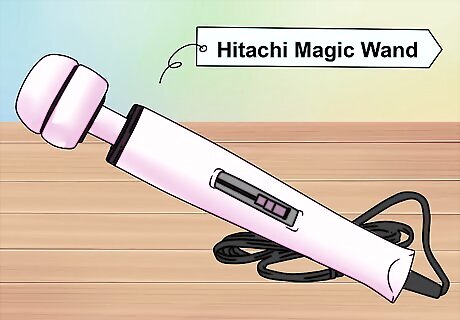
Use sexual aids in the bedroom. Vibrators or personal massagers are a great addition for women who are experiencing low sexual desire. There are many sexual aids on the market but ones that focus on clitoral stimulation, like the Hitachi Magic Wand, are best for aiding with sexual disfunction. Read reviews and blogs to find something specific to your needs and price point.

Stimulate your imagination. If you find traditional pornography to be crude or offensive, try picking up an erotica novel. Whether you use it as a tool to get your mind moving in sexy ways, or to encourage new fantasies to come out, the right erotica can get your mind open to the idea of sex. If erotica is too big of a jump into the realm of pornography for you, try a simple romance novel. Reading about the thrill of someone falling in love with another person may be all you need for a kick-start in your sex libido. Reading erotica can be a private, personal act or you can try involving your partner. Take turns reading to each other to help bring you closer together and increase your openness to another.

















Comments
0 comment